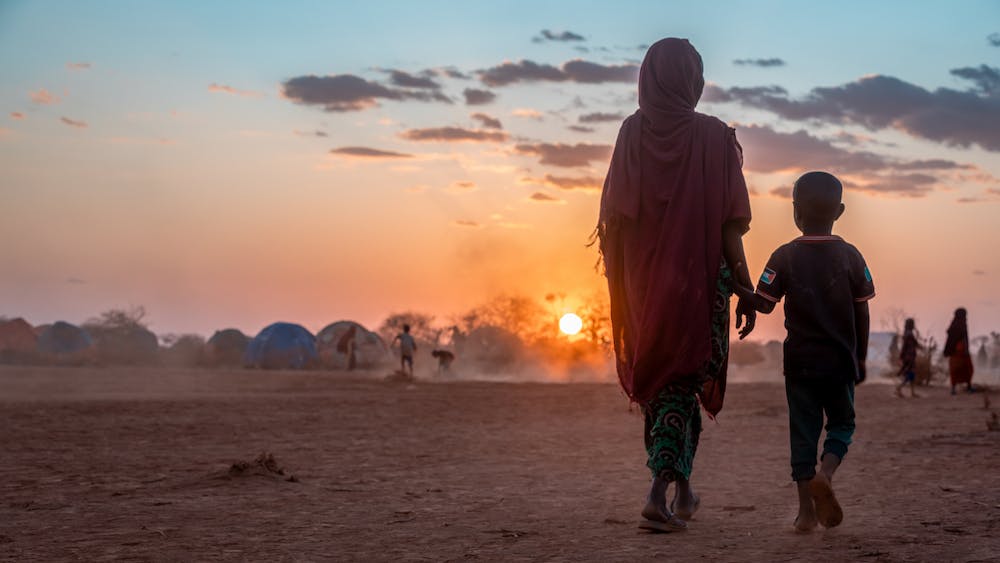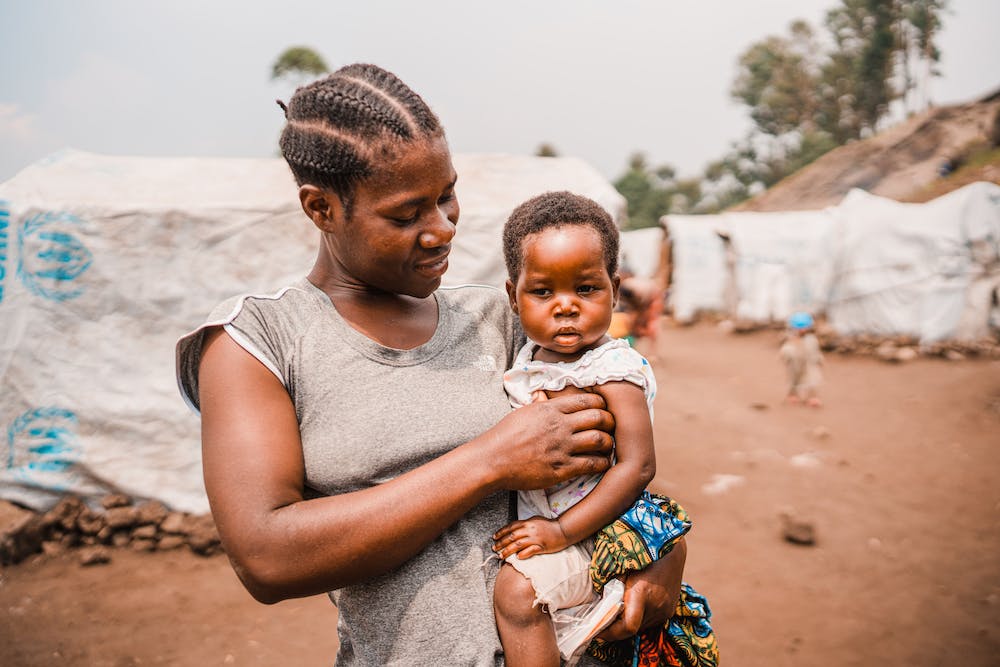Last updated August 28, 2024
Written by: Katie Mergen, Coordinator, Global Health, United Nations Foundation
In honor of World Humanitarian Day, the UN Foundation and the Alliance for Malaria Prevention hosted a webinar entitled “Health for All: Including Refugees and Internally Displaced Persons in Malaria Services” on Wednesday, August 21. Over 100 participants representing global, regional, and country-level humanitarian stakeholders discussed the importance of providing malaria services to displaced populations, including refugees.
Countries in sub-Saharan Africa are experiencing some of the most complex humanitarian crises in the world. According to Dr. Allen Maina, Chief of Public Health at the UN Refugee Agency (UNHCR), over 43 million people were forcibly displaced in the region by the end of 2023. It is projected that displacement rates could reach 1 billion people by 2050. In 2023, there were over 1 million more refugees and over 2.7 million more internally displaced people (IDPs) in the African region compared to 2022, an increase of 12% and 8%, respectively.
The prevalence of conflict and violence in the region has led to an increase in displacement rates, forcing many affected individuals to move multiple times. Additionally, climate-induced natural disasters have become a significant cause of displacement. It is estimated that climate change could result in at least 21 million extra deaths just from extreme heat, stunting, diarrhea, malaria, and dengue by 2050. By the end of 2023, almost 2.4 million people, or 7% of the total IDPs in sub-Saharan Africa, were displaced due to climate-induced disasters.

Access to healthcare stands out as a critical issue among the myriad of challenges faced by refugees and IDPs. During the webinar, Dr. Michael Charles, CEO of the RBM Partnership to End Malaria, highlighted that forcibly displaced populations are especially vulnerable to infectious diseases due to factors like inadequate living conditions, increased exposure to disease, delayed and disrupted access to health services, and socio-economic, cultural, language, and gender barriers.
The urgency of this health crisis cannot be overstated, as increased political instability, unpredictable natural disasters, and funding shortages jeopardize humanitarian efforts. The webinar discussed the strategies being implemented in the Democratic Republic of Congo (DRC) and Uganda, countries that provide refugees with the same rights as host communities, to include displaced populations in health services, emphasizing the collective responsibility and participation of national governments, UN agencies, development partners, and civil society.

According to Professor Eric Mukomena, Director of the DRC’s National Malaria Control Program, the Ministry of Health collaborates with humanitarian agencies and local leaders to establish health centers and mobile teams in displacement camps to reach almost 7 million IDPs and nearly 700,000 refugees nationwide. However, significant resource gaps hamper the humanitarian response, as the country faces shortages of important health commodities in 2024. For instance, the country has been able to procure only 1 million of the 7 million mosquito nets needed to protect people from malaria, which would include refugees and IDPs.
In Uganda, the National Malaria Control Program, led by Dr. Jimmy Opigo, collaborates with humanitarian agencies to ensure access to healthcare for all. The government invests in and leverages funding and support from humanitarian agencies to integrate over 1.7 million refugees into primary social, educational, and health services. The Uganda Health Sector Integrated Refugee Response Plan aligns health policies, interventions, inputs, and outcomes with other national health plans to mainstream refugee services at all levels of government. Further, integrating response, planning, and implementation activities allows for benchmarking against donor policies and helps reduce discrimination in service provision. However, the increasing number of displaced populations in the country has placed additional stress on already limited resources and budgets.
As demonstrated by this webinar, providing health services to the most vulnerable is essential to achieving global objectives for health. With the world’s least developed countries providing asylum to 22% of displaced people, these efforts require sustainable financial and multidisciplinary support from wealthier countries and international organizations. All stakeholders, from national governments to civil societies, must engage in advocacy, community engagement, and collaboration with governments to ensure equitable health services and the development of resilient health systems for all as we strive to achieve the 2030 Agenda for the Sustainable Development Goals.
Katie Mergen is the Coordinator for the Global Health team at the United Nations Foundation. In this role, she works across policy areas to facilitate cross-functional collaboration and contributes to special projects focused on humanitarian health, antimicrobial resistance, and pandemic prevention, preparedness, and response. Prior to joining the UN Foundation, Katie worked as an associate at Palladian Partners, where she coordinated the production of the National Institutes of Health’s All of Us Research Program newsletter and various projects for the Office of the NIH Director. Katie holds a master’s degree in public health with a concentration in humanitarian health from The George Washington University and a bachelor’s degree in public health from Northern Arizona University. Her areas of research include global and humanitarian health, gender-based violence, and US asylum policy.
To get the latest Global Health news from our experts, subscribe to our monthly newsletter.